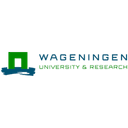This course is part of Food Security and Sustainability.
This course teaches you to tackle the complex challenge of sustainable food production through systems thinking. You'll learn to analyze and understand how different aspects of food production systems interact and affect environmental sustainability. The course covers key concepts including environmental indicators, productivity assessment, and decision-making tools. Through case studies and practical applications, you'll develop skills to evaluate food production systems at various scales and understand the trade-offs between different sustainability indicators. The course emphasizes both theoretical understanding and practical problem-solving approaches.
4
(5 ratings)
31,551 already enrolled
Instructors:
English
English
What you'll learn
Understand and apply systems thinking to food production sustainability
Evaluate environmental impacts of food production systems
Analyze productivity and environmental indicators
Assess trade-offs between different sustainability measures
Make informed decisions using life cycle assessment tools
Contribute effectively to discussions about food security and sustainability
Skills you'll gain
This course includes:
PreRecorded video
Graded assignments, Exams
Access on Mobile, Tablet, Desktop
Limited Access access
Shareable certificate
Closed caption
Get a Completion Certificate
Share your certificate with prospective employers and your professional network on LinkedIn.
Created by
Provided by

Top companies offer this course to their employees
Top companies provide this course to enhance their employees' skills, ensuring they excel in handling complex projects and drive organizational success.





There are 6 modules in this course
This comprehensive course introduces students to systems thinking in the context of sustainable food production. The curriculum covers essential concepts including environmental sustainability indicators, productivity assessment, and systems analysis. Through six modules, students learn to evaluate food production systems, understand environmental impacts, and analyze trade-offs between different sustainability indicators. The course combines theoretical knowledge with practical case studies to develop critical thinking and decision-making skills.
Complexity of sustainable food production systems
Module 1
Introduction to systems thinking
Module 2
Productivity indicators of food production systems
Module 3
Environmental indicators of food production systems
Module 4
Trade-offs between sustainability indicators
Module 5
Integration module with two case studies
Module 6
Fee Structure
Individual course purchase is not available - to enroll in this course with a certificate, you need to purchase the complete Professional Certificate Course. For enrollment and detailed fee structure, visit the following: Food Security and Sustainability
Payment options
Financial Aid
Instructors

6 Courses
Leading Expert in Agricultural Systems Analysis and Sustainability
Dr. Gerrie van de Ven serves as Assistant Professor in the Plant Production Systems Group at Wageningen University & Research, where she combines research and teaching with a focus on farming systems analysis and optimization of land-use systems related to all dimensions of sustainability. After completing her agronomy training at Wageningen University, she spent 13 years at the Centre for Agro-Biological and Soil Fertility Research developing methodologies for exploring production potentials under conflicting goals. Her PhD research explored opportunities for Dutch dairy systems, examining trade-offs between economic and environmental goals with particular attention to nutrient emissions. Following three years at the Centre of Environmental Sciences – Leiden University working on farm certification and biodiversity issues, she joined Wageningen's Plant Production Systems Group in 2000, where she has contributed to diverse research areas including mixed farming systems, multi-functional agriculture, biofuel production opportunities, and homegarden systems in Ethiopia. Her work consistently emphasizes systems analysis and sustainability, focusing on nutrient cycling, environmental impacts, and crop-livestock interactions in both Western and African contexts. She currently teaches natural resource management and systems analysis while also developing MOOCs on production ecology principles as part of the XSeries Programme in Food Security and Sustainability. Her research combines systems analysis and modeling approaches at farm and regional levels, contributing to our understanding of sustainable agricultural systems and their environmental impacts.

3 Courses
Leading Expert in Sustainable Animal Production Systems
Dr. Imke J.M. de Boer serves as Professor and Chair of Animal Production Systems at Wageningen University & Research, where she leads groundbreaking research on sustainable livestock production systems. Her work focuses on exploring the complex relationships between animal production, environmental impact, and food system sustainability. Through innovative systems analysis, she examines how livestock systems can contribute to a circular food future by converting inedible biomass into valuable food products while minimizing environmental impact
Testimonials
Testimonials and success stories are a testament to the quality of this program and its impact on your career and learning journey. Be the first to help others make an informed decision by sharing your review of the course.
Frequently asked questions
Below are some of the most commonly asked questions about this course. We aim to provide clear and concise answers to help you better understand the course content, structure, and any other relevant information. If you have any additional questions or if your question is not listed here, please don't hesitate to reach out to our support team for further assistance.



